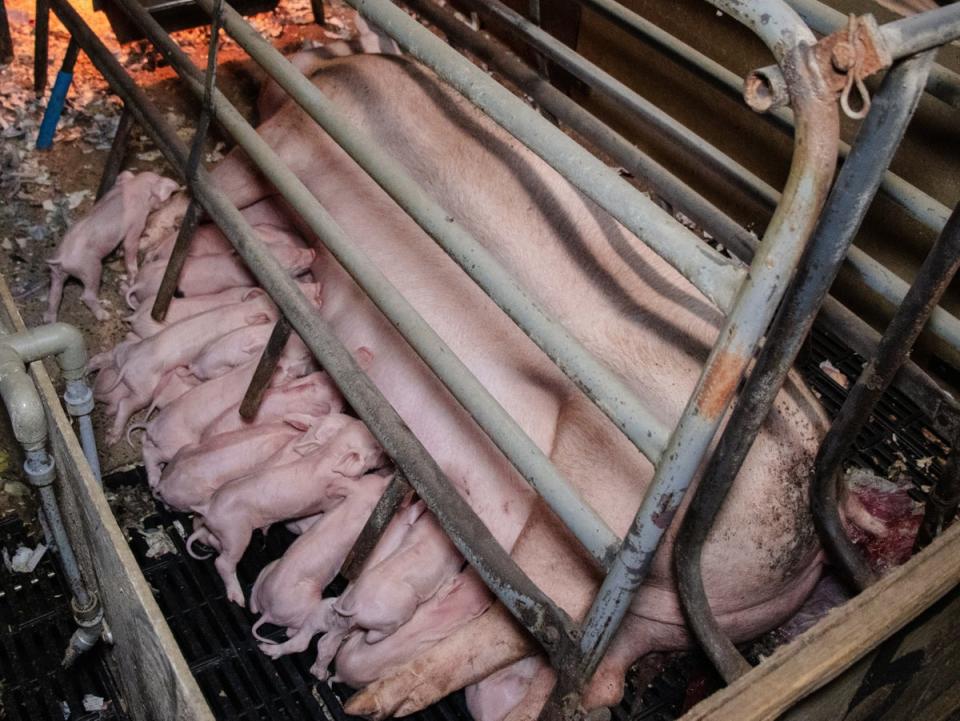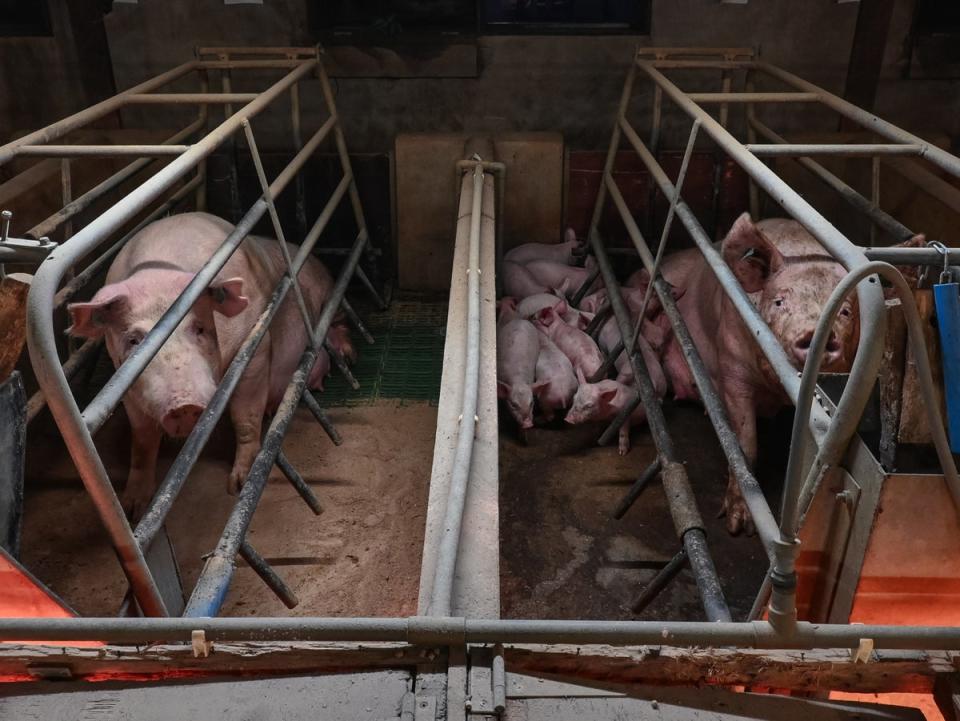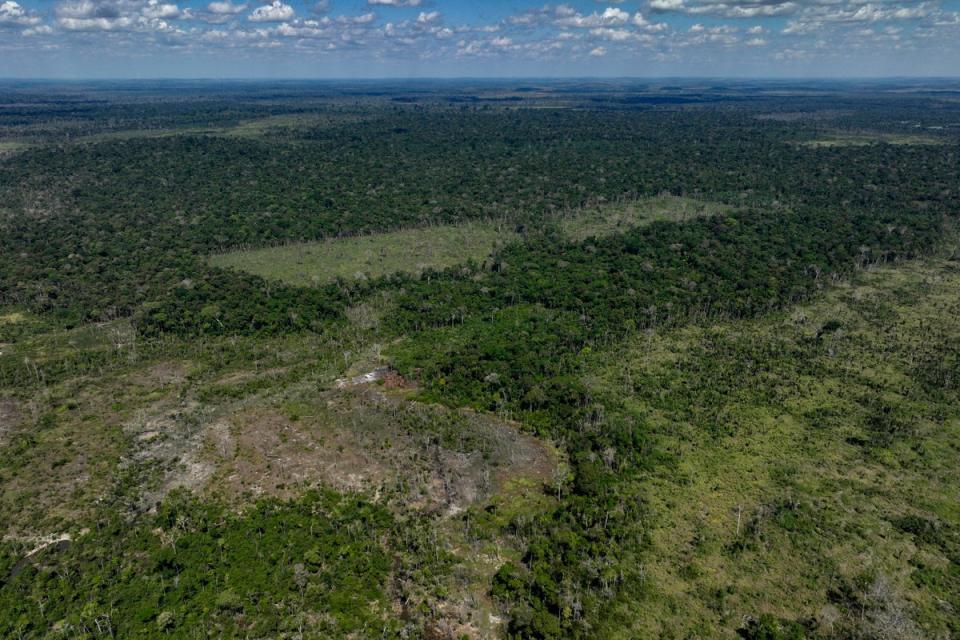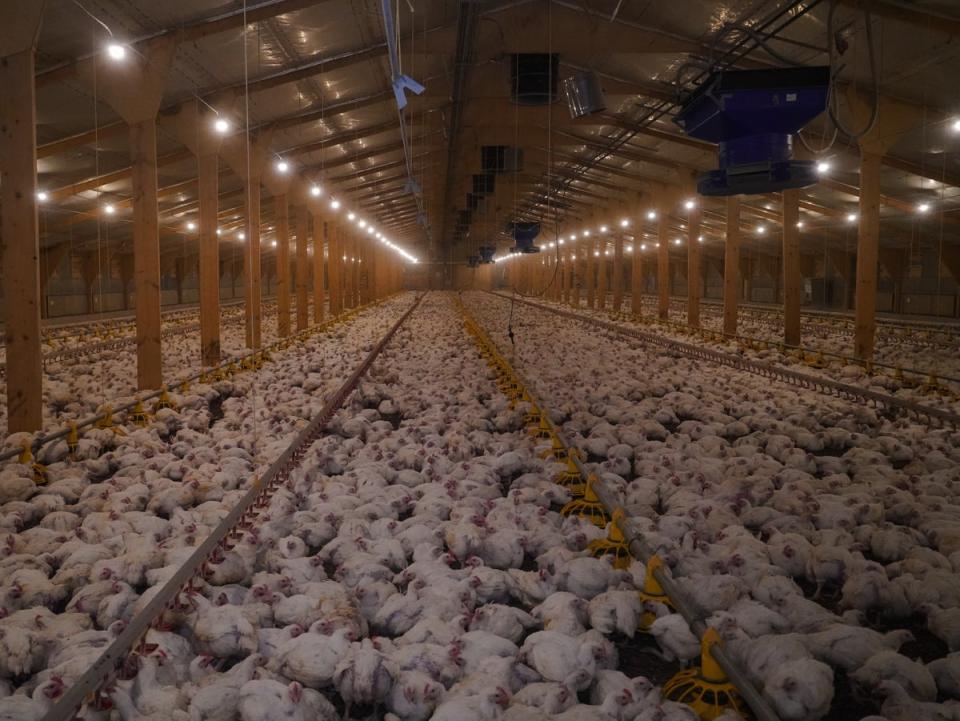More than 200 factory farms set up in UK in five years ‘creating living hell for animals’
More than 200 factory farms have been set up in the UK in just five years, creating what campaigners called “a living hell” for an extra 139 million animals.
Numbers of intensive systems have ballooned by 13 per cent, with 209 more intensive pig and poultry units, according to a new report which looked at the latest available figures.
In 2017 there were 236 pig factory farms in the UK; by 2022 there were 268, a rise of 32. In the same period, poultry factory farms rose from 1,376 to 1,553 – an increase of 177.

In all there were 1,821 intensive farms, designed to “maximise production and profit” and accounting for four in five farm animals. The government said all farms are closely regulated and inspected.
Residents in several places have fought campaigns against plans in recent years to open factory farms near them, fearing pollution of air, land and water from run-off, as well as foul smells.
World Animal Protection, which compiled the report, said the expansion of factory farming means cruelty has hit record levels.
Lindsay Duncan, the charity’s farming campaigns manager, called on the government to stop approving new factory farms.
Some experts have previously called on banks and the International Monetary Fund to stop investing in factory farming to cut the risk of future pandemics.
According to the report’s authors, pigs and chickens bred for meat are reared in the lowest possible welfare conditions legally allowed.
They claim high death rates are the norm, with more than a million broiler chickens dying each week.

The report, called “Confined in Cruelty: The Stark Reality of UK Farming”, sets out how factory farming harms the environment by using large quantities of feed, water, energy and medications, as well as causing high levels of air, water and soil pollution.
It says animals bred to grow rapidly or produce high yields suffer lameness, weakened or broken bones, infections and organ failure and reproductive difficulties.
Intensive farms drive the climate crisis through deforestation, the document warns: “The UK imported £3.3 billion pounds of animal feed in 2022, and is a major contributor to deforestation of the Amazon, Cerrado, and other biodiversity rich regions, to produce grain and soy-based animal feeds.”

Factory farming also contributes to growing antibiotic resistance, it is also claimed.
World Animal Protection says the UK has fallen behind seven European countries on farmed animal welfare.
Sweden, Switzerland and Norway have banned routine use of farrowing crates where mother pigs cannot turn around but the charity says “these horrific contraptions are still commonplace on UK farms”.
“Enriched cages” for hens – described as battery cages with a postcard-size space added – are typical on UK factory farms but will be banned in Germany next year, in Czechia by 2027 and in Slovakia by 2030, while France has banned any new cages.

Scotland announced a consultation on banning enriched cages last month but England and Wales have not.
The EU has banned preventative use of antibiotics, which activists say allows animals to survive in “squalid conditions” – but the UK has not.
A poll for World Animal Protection found more than two-thirds of people think allowing piglets to have their tails cut off without pain relief – often done in factory farms – is cruel.
World Animal Protection estimates by last year there were at least 1.71 billion animals in UK factory farms.
A government spokesperson said: “All farms are closely regulated, with more than 4,800 government-funded farm inspections taking place last year. These help farmers improve their practices and reduce environmental impacts, especially on our waterways.
“We have set highly ambitious legally binding targets to reduce water pollution from agriculture and our farming schemes are supporting farmers to reduce pollution and agricultural run-off.
“All farm animals are also protected by comprehensive UK law on animal health and welfare.”


